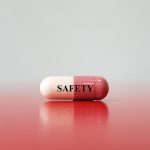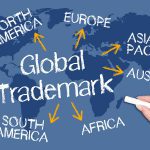What makes a great brand name? That depends on who you ask. One thing is for certain, whether developing a name for a new cereal, car or pharmaceutical product, two hurdles must be overcome: 1) buy-in on the ‘best’ name and 2) trademark registration. Determining the ideal name can be tricky as you may soon realize that almost everyone in your organization considers themselves a naming expert. They will tell you why a name will or won’t work. Hopefully your determination of the best name is based on more than an informal internal Survey Monkey, but rather some type of quantitative research with potential customers or industry experts. You must consider a multitude of factors, which might include competitive environment, corporate portfolio, brand personality, positioning, and lifecycle management, just to name a few.
Assuming you have agreement on the best name(s), then you need to identify their legal viability. From a trademark or legal perspective, while you can name a product anything you want to and begin selling it, you should proceed with caution. Try opening a fast-food burger restaurant named McDowells with the ‘golden arcs’ as your logo and sell the ‘Big Mic’ as your signature burger as they did in Coming to America. You will most certainly receive a cease-and-desist letter from McDonald’s legal. Trademarks are filed for names of products and are used as a sign capable of distinguishing the goods or services of one enterprise from those of other enterprises. They are designed to protect consumers, so we are not tricked or mistakenly buy one company’s product while expecting another. These trademarks are protected globally by intellectual property rights.
There are various trademark organizations around the world including USPTO (United States Patent & Trademark Office), WIPO (World Intellectual Property Organization) and EUIPO (European Union Intellectual Property Office) that determine whether potential names are similar and can co-exist in the marketplace without confusion. Trademarks are filed in one or more of the 45 different classes of goods and services which is why you can have Delta (airlines) filed in class 39 (transportation, travel) and Delta (faucets) in class 13 (hardware, plumbing). The various global trademark offices recognize the chances of someone getting confused and purchasing a faucet instead of an airline ticket is almost nonexistent (even if you are travelling to Fawcett, Ohio). This is why companies tend to conduct legal searches in house or with outside counsel on top name(s) and then file trademark applications to secure the legal rights to a name prior to conducting business. Finding out your name has infringed on another’s trademark after product, materials, packaging, signage, etc. has been developed can be extremely costly.
Finally, for certain industries there might be regulatory hurdles. Did you realize in the US you can’t call any food low-fat? Certain FDA guidelines must be met to use this moniker. And when naming a prescription drug, the FDA has an entire division, DMEPA (Division of Medication Error Prevention and Analysis) that can take up to 180 days to review one proposed Rx brand name to ensure it doesn’t sound-like or look-like another drug name to help avoid medication errors. So, remember, while everyone is a naming expert, it is no wonder thousands of companies have entrusted Brand Institute, the naming experts. Don’t hesitate to reach out and explain your unique challenges and let us create a custom solution that works for you.
By Dave Dettore

